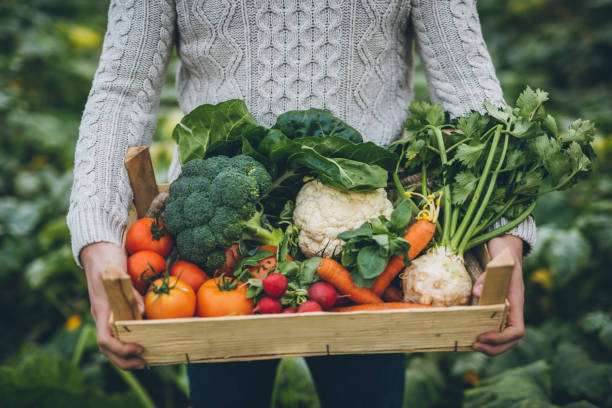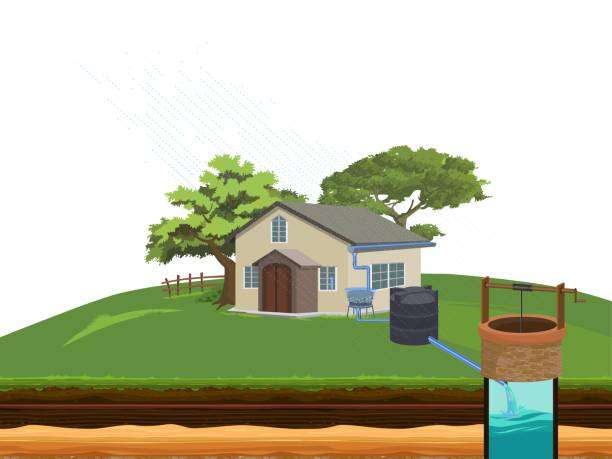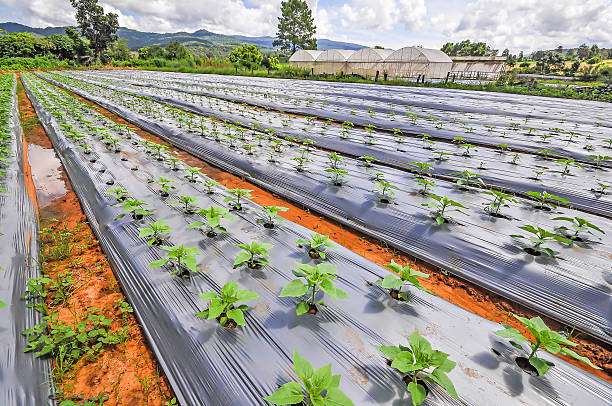Introduction
Sustainable agriculture is an important practice that aims to fulfil our present meals desires at the same time as safeguarding the surroundings for destiny generations. By adopting sustainable agriculture practices, we are able to ensure a greener future with progressed soil health, decreased water utilization, and minimized environmental impact. In this text, we are able to discover ten key sustainable agriculture practices that make contributions to an extra sustainable and environmentally pleasant approach to farming.
Crop Rotation

Crop rotation is a critical sustainable agricultural practice that includes alternating the vegetation grown on a selected field from season to season. This exercise allows improve soil fertility, control pests and illnesses, and reduce the need for artificial fertilizers and pesticides. By rotating plants, farmers can ruin pest and disorder cycles and save soil depletion, ultimately leading to better crop yields and more healthy ecosystems.
Organic Farming

Organic farming is an agricultural method that places emphasis on the usage of herbal fertilizers, inclusive of compost and manure, whilst warding off the use of artificial chemical substances. By putting off synthetic insecticides and fertilizers, natural farming reduces the discharge of dangerous pollutants into the environment. It promotes biodiversity, complements soil fertility, and produces more healthy and extra nutritious crops.
Conservation Tillage

Conservation tillage is an exercise that minimizes soil disturbance all through the planting and cultivation technique. It involves leaving crop residues on the soil surface to protect it from erosion and preserve moisture stages. Conservation tillage helps prevent soil erosion, improve soil structure, and preserve water. It additionally reduces gasoline intake and lowers greenhouse gasoline emissions associated with tillage operations.
Integrated Pest Management
Integrated Pest Management (IPM) is an environmentally sensitive method to pest manipulate that objectives to limit using synthetic insecticides. IPM makes a specialty of preventing pest troubles through implementing a combination of strategies inclusive of biological control, crop rotation, habitat manipulation, and the use of resistant crop sorts. By the usage of IPM techniques, farmers can efficiently manipulate pests even as lowering the bad effect on the environment and human fitness.
Agroforestry

Agroforestry is a sustainable land management gadget that combines trees or shrubs with agricultural crops or livestock. This practice offers several environmental advantages, which includes soil conservation, carbon sequestration, and biodiversity renovation. Agroforestry structures contribute to sustainable agriculture through enhancing soil fertility, offering color and windbreaks, and diversifying farm income.
Water Conservation

Water conservation is important for sustainable agriculture, particularly in areas dealing with water shortage. Farmers can adopt various water-saving strategies such as drip irrigation, rainwater harvesting, and green irrigation scheduling. These practices decrease water waste, improve water-use performance, and help hold this valuable aid for destiny generations.
Precision Farming

Precision farming, also called precision agriculture, entails the use of technology and information analysis to optimize agricultural practices. Farmers can make use of equipment like GPS, sensors, and drones to accumulate actual-time records on soil situations, crop health, and weather styles. By making use of inputs consisting of fertilizers and water exactly in which and whilst they’re needed, farmers can limit waste, increase productivity, and decrease environmental effect.
Cover Crops

Cover vegetation is grown between important crop seasons to protect and increase the soil. These crops assist prevent soil erosion, maintain moisture, suppress weed growth, and beautify soil fertility. They additionally promote biodiversity by way of imparting habitat for useful insects and microorganisms. Cover plants, which includes legumes, can restore nitrogen in the soil, lowering the need for synthetic fertilizers. Incorporating cover crops into farming practices contributes to sustainable agriculture by way of enhancing soil fitness and reducing the reliance on chemical inputs.
Composting


Composting is the manner of decomposing natural materials, such as crop residues, food waste, and manure, into nutrient-rich compost. Farmers can utilize compost as a natural fertilizer, enriching the soil with critical nutrients and natural matter. Composting facilitates enhanced soil structure, water retention, and microbial pastime, leading to healthier plant growth and decreased reliance on synthetic fertilizers. It additionally redirects organic waste far from landfills, resulting in a reduction of greenhouse fuel emissions.
Crop Diversification
Crop diversification includes cultivating a big selection of plant life inside the equal agricultural area. This practice offers a multitude of advantages, encompassing effective pest and ailment control, enhancement of soil fitness, and mitigation of risks. Through the cultivation of various plants, farmers can disrupt pest existence cycles, minimize sickness transmission, and uphold a harmonious ecological balance. Furthermore, crop diversification contributes to the enrichment of soil fertility by means of stimulating nutrient cycling and mitigating soil-borne illnesses.
Conclusion
In precise, the adoption of sustainable agriculture practices performs a vital role in fostering a greater environmentally aware destiny. Through the implementation of crop rotation, natural farming, conservation tillage, including pest control, agroforestry, water conservation, precision farming, cowl plants, composting, and crop diversification, farmers actively contribute to a sustainable and eco-friendly meals production gadget. These practices not handiest protect our herbal sources however additionally beautify soil energy, sell biodiversity, and give a boost to crop resilience. Embracing sustainable agriculture practices is a shared responsibility that paves the manner for a greener and more sustainable future for generations to come back.
FAQs
1. What is sustainable agriculture?
Sustainable agriculture is a method of farming that focuses on meeting cutting-edge meals production needs even as keeping the surroundings for destiny generations. It aims to minimize environmental impact, sell biodiversity, and ensure the lengthy-time period sustainability of agricultural practices.
2. Why is sustainable agriculture crucial?
Sustainable agriculture is critical as it facilitates guarding natural sources, reduces pollutants, sells biodiversity, and ensures meals safety. It contributes to a greener destiny by adopting practices which are environmentally friendly, economically viable, and socially accountable.
3. How does crop rotation gain sustainable agriculture?
Crop rotation blessings sustainable agriculture by means of enhancing soil fertility, controlling pests and sicknesses, and decreasing the need for synthetic inputs. It breaks pest cycles, prevents soil depletion, and promotes healthier ecosystems.
4. What are the benefits of organic farming?
Organic farming has numerous benefits, together with reduced chemical pollution, better soil fertility, expanded biodiversity, and production of healthier and greater nutritious vegetation. It avoids using artificial insecticides and fertilizers, promoting a more sustainable and environmentally pleasant technique to agriculture.
5. How can precision farming contribute to sustainable agriculture?
Precision farming utilizes era and records analysis to optimize agricultural practices. By making use of inputs exactly in which and whilst they may be wished, farmers can reduce waste, increase productivity, and decrease environmental impact. Precision farming helps preserve sources together with water and fertilizers whilst maximizing crop yields.
